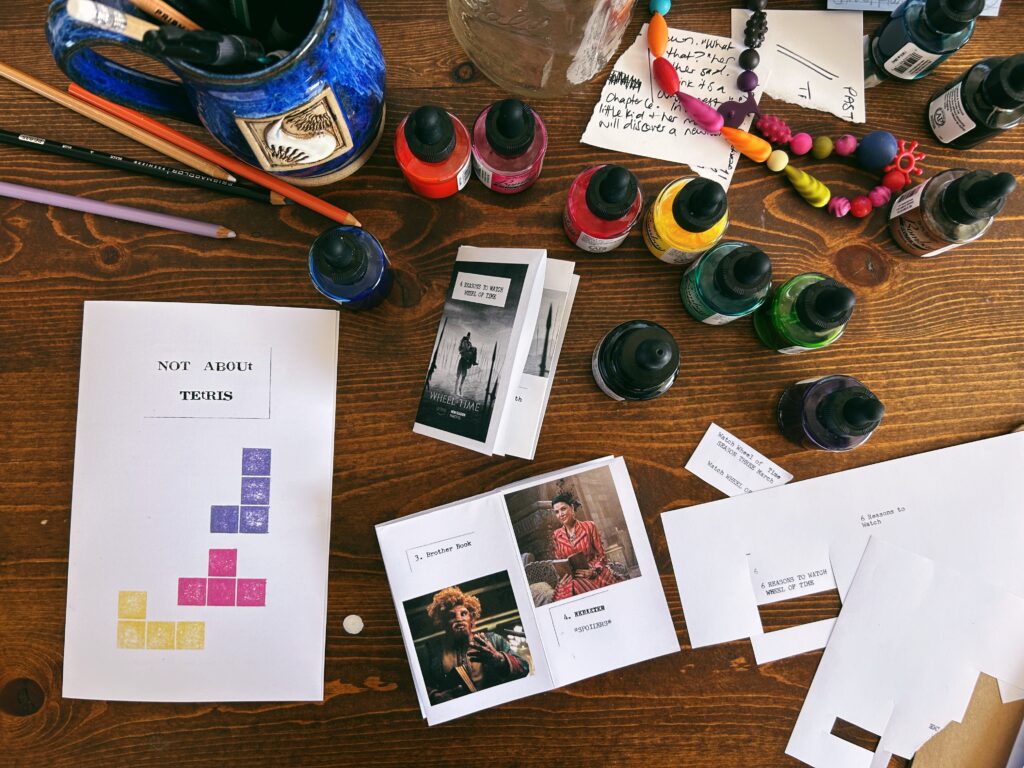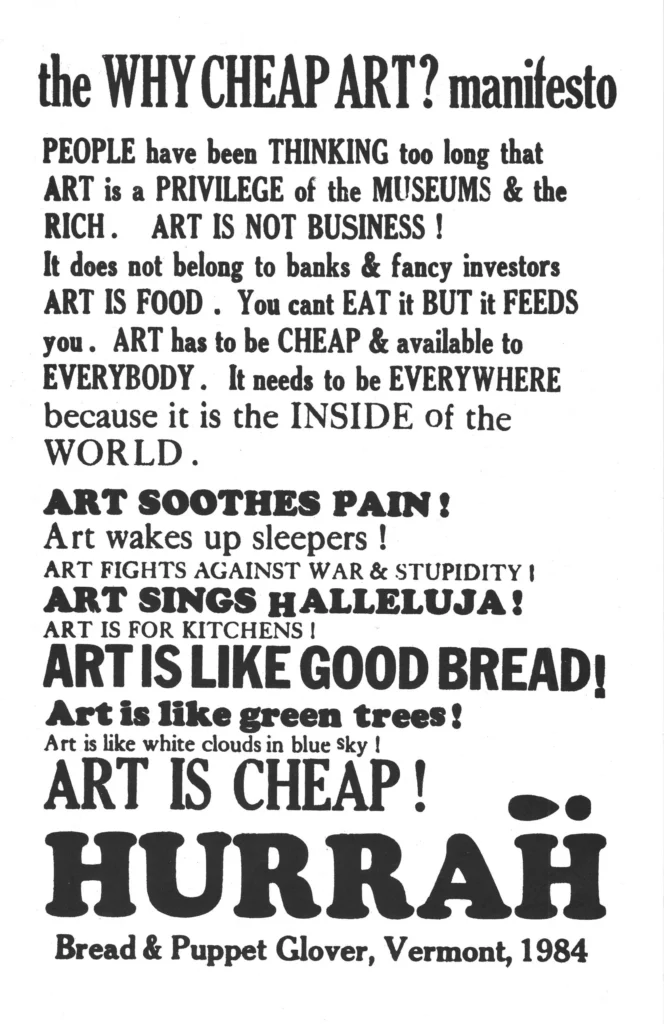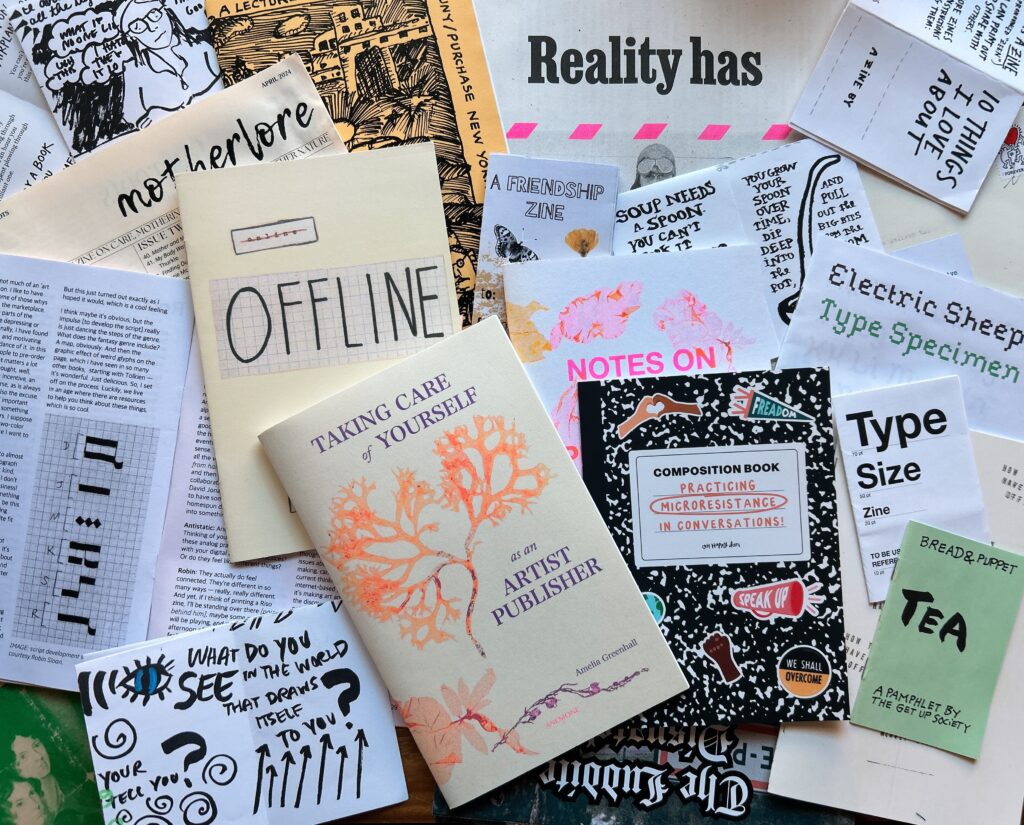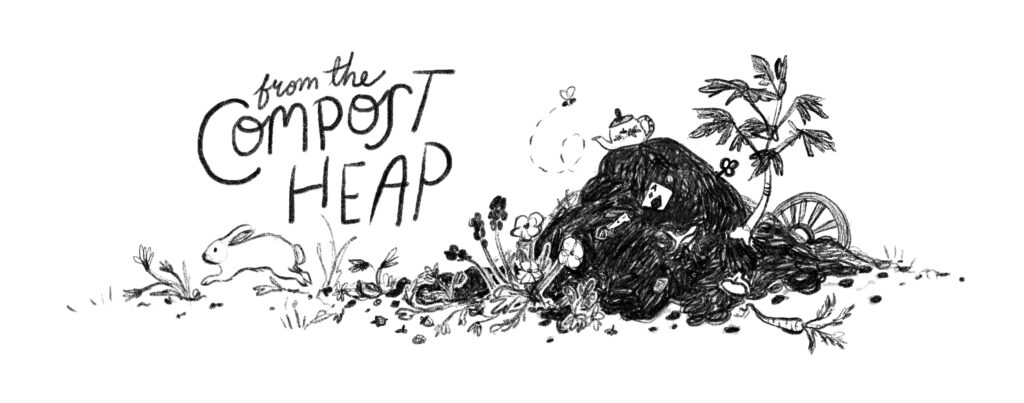What is a zine?
A zine (pronounced ZEEN) is a handmade magazine about a specific topic.
“Zines have been around since the early 20th century, and have been an enormous part of underground and non-commercial publication.” *
I learned about zines from Austin Kleon who has a great collection of printables zines and resources on his website. He also has a tutorial to make a “mini zine” from a single sheet of paper.
Having tried both ways I prefer to make zines out of sheets folded in half. Sometimes I use a single page and other times I nest and staple them.

“Zines are characteristically cheap to make, often photocopied, and have a distinctly DIY look. Often, they represent the voices of people on the fringes, and their content is hyper local.” *
Zines were bore to share information and amplify voices that weren’t often represented in mainstream media. As a result, zine making has a rich history among marginalized communities, fandoms, and activists.
If you want a deep dive into the history of zines and how to make your own I recommend this free zine by The Public in Canada.
Zinesters (people who make zines) often value the act of sharing information over an potential profit. Zines are made cheaply so they can be easily sold, traded or given away.
Zines fall into the cheap art philosophy which I’m passionate about.
Art is for everyone.

Purchase this print from Bread & Puppet.
Use What You Have
Zines are an indie solution to sharing information. Use what you have access to.
Paper, markers, stamps, paints, stickers, tape.
Photocopy, scan, or photograph.
Or make your zine digitally.
Share your zine online or print copies to sell, trade, or give away.
Would you like to trade with me? Reach out and let me know!
I also have a monthly subscription if you’d like a new zine each month.

Artist Publishing
Zine making is just one kind of artist publishing. Any type of independently produced book or publication is a form of artist publishing. This can range from self publishing books, newspapers, zines, or artist books.
Artist books often embrace time intensive methods and archival quality materials. As a result they are often more highly priced.
If you’d like to learn more about artist publishing I’d recommend starting here. Or browsing my artist publishing board on are.na.
I’ve been focused on zine making, but collect both zines and artist books. I may explore creating an artist book when I complete my fine art collection.
My Zine Collection
Here’s a peek at my zine collection and links to the artist’s shops.

- Notes on Artist Publishing by Amelia Greenhall
- Microresistance in Conversations by Oh Happy Dani
- Share Your Zines Without Social Media by Veronique
- Mail Blog by C.C.
- Type Size Zine by Mitchell Volk
- Offline by Mehret Biruk
- A Lecture to Art Students by Bread & Puppet
- Taking Care of Yourself as an Artist Publisher
- Motherlore Issues #1 & #2
- 4 Questions by Jocelyn Mathewes
- Reality Zine by Robin Sloan
- How to Have Fun Offline by Mehret Biruk
- Perfect Tree Shapes by Frannerd
- The Luddite Dispatch
- Electric Sheep by Mitchell Volk
- Antistatic Interview Object #1
- Tea by Bread & Puppet
- Strangeness Blooms by Robin Sloan
Free Printable Zines!
- A Meditation on Mutual Aid by Kennedy McDaniel
- Friendship Zines by Hanna Keiner
- Zines > Screens by Veronique
- Zines by Austin Kleon
Artist Books
- Dial by Philippa Stanton
- 63 Objects Taken From My Son’s Mouth by Lenka Clayton
- Manifestos Manifested by ILSSA
Zine Archives
There are lots of places online and “IRL” (in real life) that are dedicated to archiving zines. If you’d like to archive your zine you can check with any of the organizations below, your local library, or upload to archive.org (like this.) Every archive has it’s own mission so be sure to make sure your zine is a good fit before submitting.
More Inspiration
- The Offline Rebellion of the Most Online Generation (podcast)
- Cortney Cassidy on her Mail Blog project (and her archive.)
- My zine board on are.na
- My artist publishing board on are.na
Footnotes
* A History of Zines. River H. Kero. bookriot.com/history-of-zines/
